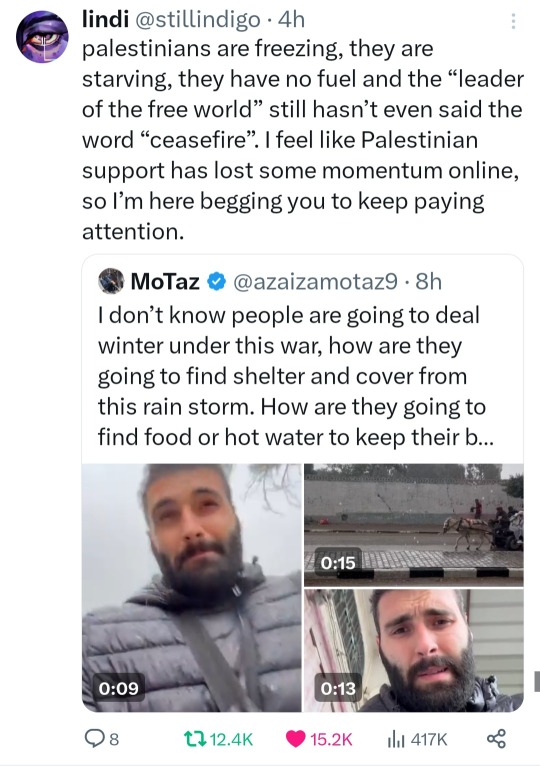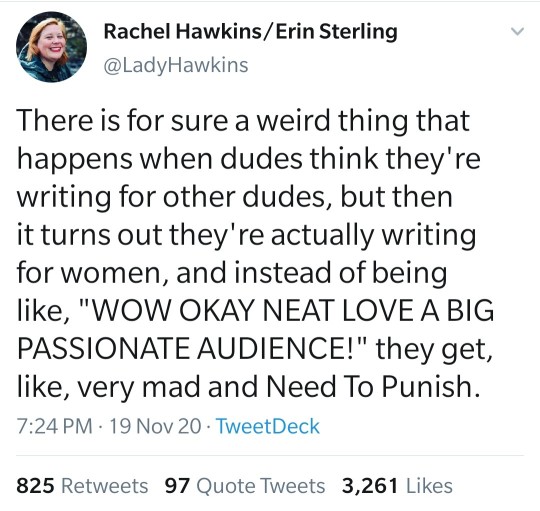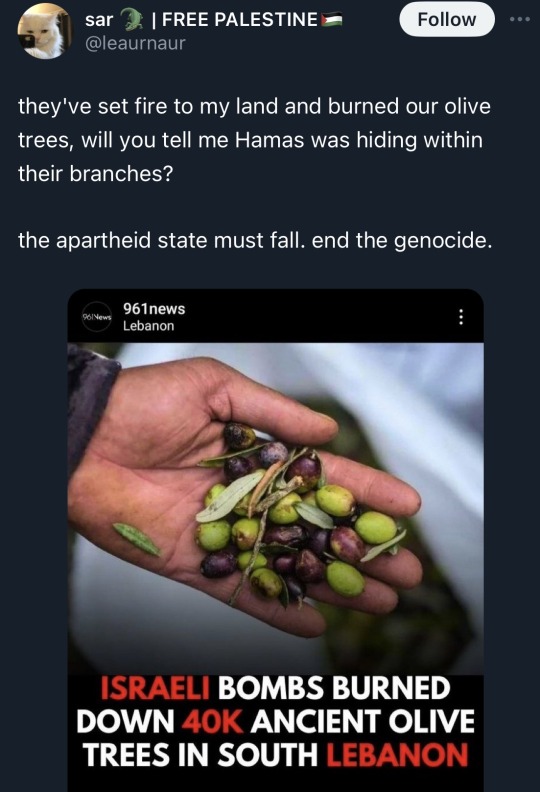Text
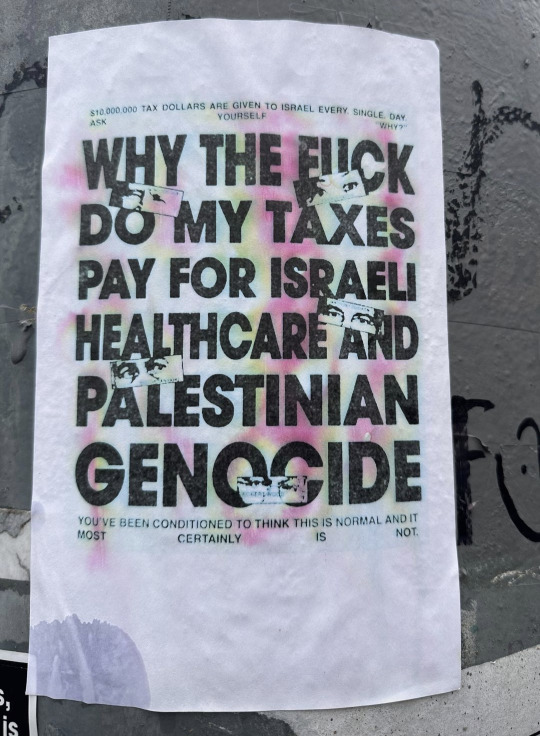
Palestine solidarity poster seen in Seattle
18K notes
·
View notes
Text
woman is told she's just like her father 100000 dead 60000 injured
4K notes
·
View notes
Text
Reblog to have the most homoerotic year of your life 2024
104K notes
·
View notes
Text
STOP THINKING THERE IS A DEADLINE. THERE IS NO DEADLINE. TAKE A DEEP BREATH AND TAKE YOUR TIME.
144K notes
·
View notes
Text
something i’ve been thinking about lately is like. growing up muslim right after 9/11 is something i’d never really reflected on much because it was all i’d ever known — at 5, my friend’s mum didn’t let her invite me to her birthday party because i was the only brown girl in our class, at 12, my classmates would joke about my family being part of isis, at 16, my dad was interrogated by american airport security for hours — and it always stung and it always hurt but it was just the way things were because the western world hated muslims. but i don’t think i’ve ever fully comprehended the extent to which we were hated until now.
palestine is being turned into a mass graveyard. every single day there are new photos of the atrocities being carried out against them and videos of them pleading for help and still those who can actually intervene turn a blind eye. israel is claiming to only be targeting hamas “terrorists” while bombing a refugee camp. israeli police raided and assaulted a non-zionist jewish neighbourhood. israeli soldiers are posting tiktoks of them torturing captured palestinians. this is not a complicated issue and it never has been. ethnic cleansing is being committed right in front of us. and yet the western world leaders refuse to call for a ceasefire.
and while zionist organisations accuse pro-palestine demonstrations of anti-semitism, while zionist celebrities insist that they’re afraid to leave their mansions in los angeles, a six year old muslim boy was stabbed to death and his mother wounded in the same attack in chicago. a muslim doctor was murdered while sitting outside her apartment complex in texas. hundreds of peaceful protesters have been arrested (many of whom have been jewish). despite what zionists want you to believe, this is not a jewish/muslim conflict. i have so much love and gratitude to my brave jewish brothers and sisters all over the world who are condemning israel for their actions.
ultimately, israel have been granted impunity by the west. they have slaughtered thousands upon thousands of innocent palestinians. they have bombed hospitals and schools indiscriminately. they have used white phosphorus, violating the geneva convention. they have completely eradicated nearly 900 bloodlines. how many more need to be wiped out? how many more children need to be buried underneath the rubble? how many more doctors need to be confronted with the bodies of their own family members? how many more journalists need to detail the horrific acts of violence they are witnessing? what more can be done to the palestinian people that has not been done already?
i truly believe that palestine will be free one day. i believe the palestinian people will receive the justice they finally deserve. but what breaks my heart is how much they have suffered and will continue to suffer before they are deemed worthy of help. and it would be to all of our detriment if we ignored how much of a factor palestine being a predominantly muslim state has played into the way the world has reacted to their genocide.
18K notes
·
View notes
Text
Im enjoying the longevity of tumblrs recontextualization style of humor. a seemingly innocuous post followed by like "posts that a gnome would make" or like "are you a phone"
318K notes
·
View notes
Text
Was walking through my mom's house to borrow my dad's drill when I saw my 11yo niece watching me with an odd expression.
"You wanna help me build the catio?"
Her eyes lit up, then she looked disappointed. "But I'm a girl..."
I rolled my eyes. "Do I look like I care?"
That must have been the right response because she jumped up and chattered excitedly as I showed her how to use a tape measure, a drill, etc. We spent all day building and she had a brilliant smile the whole time. After the tenth declaration of this being the best day in her life, I said,
"Gotta love that sweet sweet serotonin!"
She immediately started giggling, "What does that meeeeaan??"
Anyway, she had an amazing time building with me and acted like I had given her a solstice gift when I said she could paint it and that I'd take her to the hardware store to pick out hardware. She's never been to a hardware store before and I love being the weird knowledgeable uncle who has weird pets always keeps fruit and pistachios in the house.
74K notes
·
View notes
Text
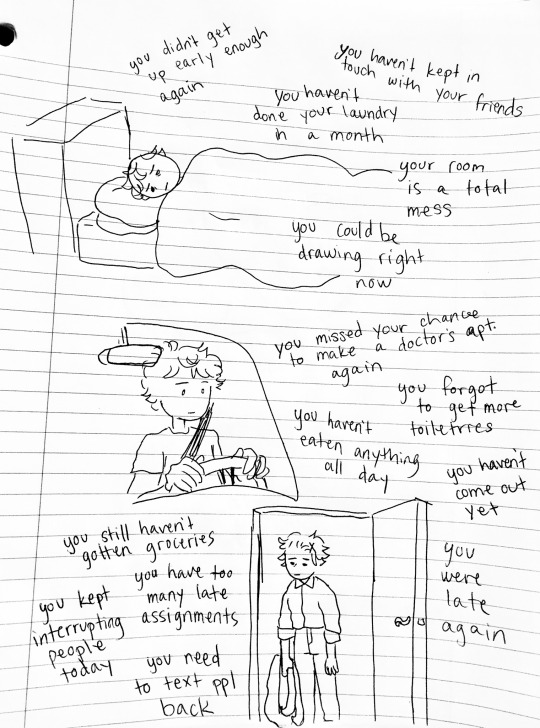

some thoughts about ADHD and baseline guilt
35K notes
·
View notes
Text

mind your own business he’s just commuting to work
4K notes
·
View notes
Text
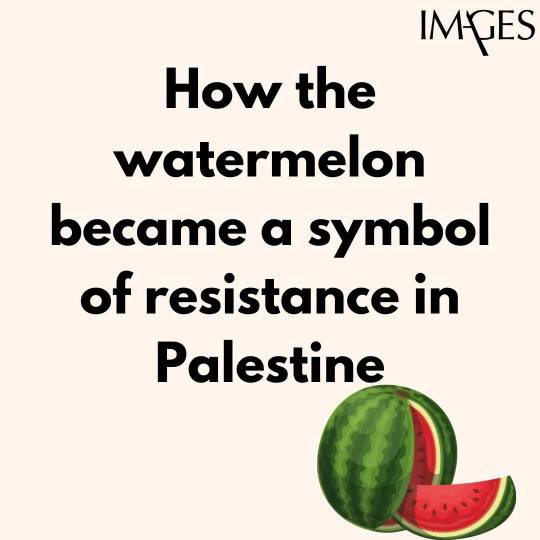


How the Watermelon Became a Symbol of Palestinian Solidarity
The use of the watermelon as a Palestinian symbol is not new. It first emerged after the Six-day War in 1967, when Israel seized control of the West Bank and Gaza, and annexed East Jerusalem. At the time, the Israeli government made public displays of the Palestinian flag a criminal offense in Gaza and the West Bank.
To circumvent the ban, Palestinians began using the watermelon because, when cut open, the fruit bears the national colors of the Palestinian flag—red, black, white, and green.
The Israeli government didn't just crack down on the flag. Artist Sliman Mansour told The National in 2021 that Israeli officials in 1980 shut down an exhibition at 79 Gallery in Ramallah featuring his work and others, including Nabil Anani and Issam Badrl. “They told us that painting the Palestinian flag was forbidden, but also the colors were forbidden. So Issam said, ‘What if I were to make a flower of red, green, black and white?’, to which the officer replied angrily, ‘It will be confiscated. Even if you paint a watermelon, it will be confiscated,’” Mansour told the outlet.
Israel lifted the ban on the Palestinian flag in 1993, as part of the Oslo Accords, which entailed mutual recognition by Israel and the Palestinian Liberation Organization and were the first formal agreements to try to resolve the decades-long Israeli-Palestinian conflict. The flag was accepted as representing the Palestinian Authority, which would administer Gaza and the West Bank.
In the wake of the accords, the New York Times nodded to the role of watermelon as a stand-in symbol during the flag ban. “In the Gaza Strip, where young men were once arrested for carrying sliced watermelons—thus displaying the red, black and green Palestinian colors—soldiers stand by, blasé, as processions march by waving the once-banned flag,” wrote Times journalist John Kifner.
In 2007, just after the Second Intifada, artist Khaled Hourani created The Story of the Watermelon for a book entitled Subjective Atlas of Palestine. In 2013, he isolated one print and named it The Colours of the Palestinian Flag, which has since been seen by people across the globe.
The use of the watermelon as a symbol resurged in 2021, following an Israeli court ruling that Palestinian families based in the Sheikh Jarrah neighborhood in East Jerusalem would be evicted from their homes to make way for settlers.
The watermelon symbol today:
In January, Israel’s National Security Minister Itamar Ben-Gvir gave police the power to confiscate Palestinian flags. This was later followed by a June vote on a bill to ban people from displaying the flag at state-funded institutions, including universities. (The bill passed preliminary approval but the government later collapsed.)
In June, Zazim, an Arab-Israeli community organization, launched a campaign to protest against the ensuing arrests and confiscation of flags. Images of watermelons were plastered on to 16 taxis operating in Tel Aviv, with the accompanying text reading, “This is not a Palestinian flag.”
“Our message to the government is clear: we will always find a way to circumvent any absurd ban and we will not stop fighting for freedom of expression and democracy,” said Zazim director Raluca Ganea.
Amal Saad, a Palestinian from Haifa who worked on the Zazim campaign, told Al-Jazeera they had a clear message: “If you want to stop us, we’ll find another way to express ourselves.”
Words courtesy of BY ARMANI SYED / TIME
3K notes
·
View notes
Text

Israel has wiped out 881 families.
881 bloodlines.
881.
11K notes
·
View notes
